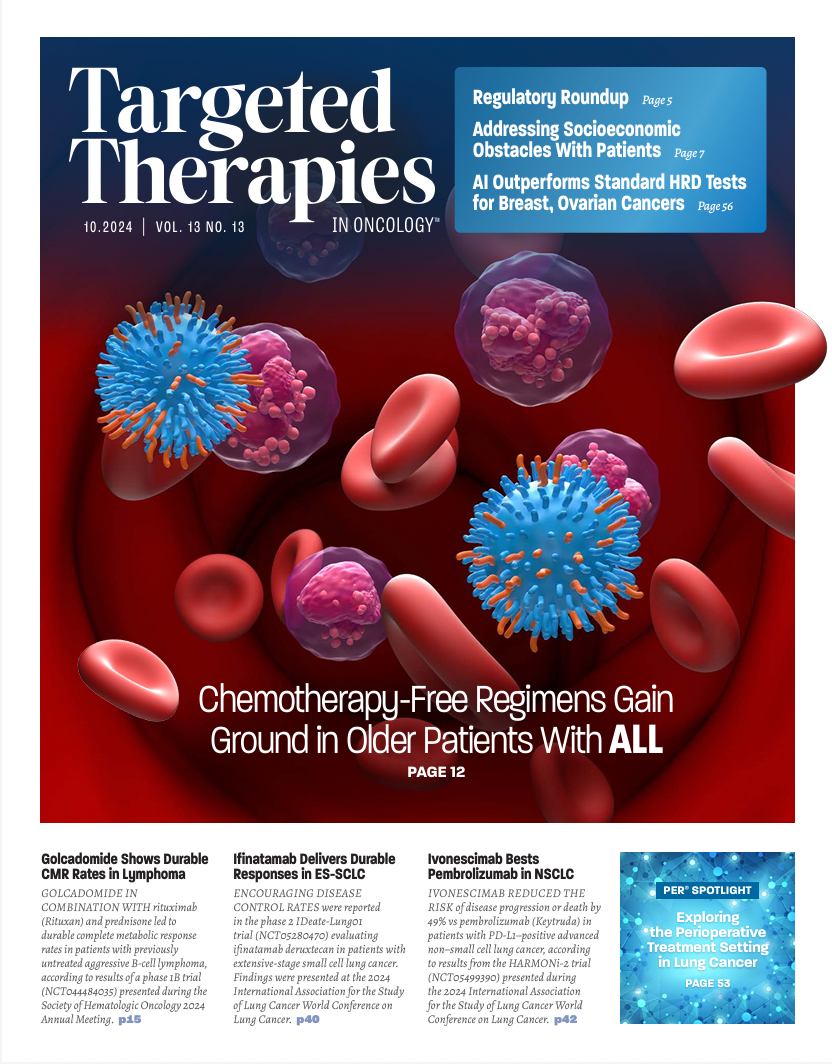Bispecific Antibodies and ADCs Deliver a Futuristic Horizon Across Lung Cancer Settings
Recent advancements in protein engineering, especially antibody-drug conjugates, show promise in lung cancer treatment, with ivonescimab outperforming pembrolizumab in PD-L1-positive advanced non-small cell lung cancer.
Robert L. Ferris, MD, PhD
Lineberger Distinguished
Professor
Executive Director
UNC Lineberger Comprehensive Cancer Center and Chief of Oncology Services
UNC Health System
Chapel Hill, NC

Recently, much has been written in these pages and the field of oncology about novel protein engineering that is molecularly linked with chemotherapy and other oncolytic and immunostimulatory payloads. The antibody-drug conjugate (ADC) field has been exploding with novel payloads, antibody targeting, and combinations—not to mention the various diseases being evaluated.
Lung cancer is a very prevalent disease, unfortunately, but it is a fascinating and broad representation of oncogenic activating mutation–driven cancers that respond to targeted therapies. The disease is characterized by immunostimulatory and immunogenic phenotypes and subtypes that respond to PD-1 or CTLA-4. The role of chemotherapy has also been maintained in combination with these novel tumor-targeted and immune-targeted therapies.
At recent lung cancer meetings, we are beginning to see direct head-to-head comparisons of ADCs with standard-of-care PD-1 and PD-L1 inhibitors. For example, at the International Association for the Study of Lung Cancer’s 2024 World Conference on Lung Cancer, the bispecific antibody ivonescimab (AK112) was compared with pembrolizumab (Keytruda) in advanced non–small cell lung cancer (NSCLC). Ivonescimab demonstrated a statistically significant and clinically meaningful improvement in progression-free survival (PFS) in PD-L1–positive NSCLC. The data support ivonescimab monotherapy as a new first-line treatment option for patients who are PD-L1 positive with advanced NSCLC. At the same conference, Charles M. Rudin, MD, PhD, demonstrated that an ADC may deliver better PFS and response rates than pembrolizumab.
In extensive-stage small cell lung cancer, a trial evaluating ifinatamab deruxtecan led to a dose-response benefit in response rate, from 8 mg/kg up to 12 mg/kg, for a 26% overall response rate (per RECIST 1.1 criteria) for the lower dose and a nearly 55% partial response rate for the higher dose.
These protein-engineered agents suggest that the ability to fine-tune our targets and strategies may yield objective improvement in clinical responses. Specific targeted antibodies with payloads that are combined with other therapies that were heretofore unimaginable are now on the horizon and in development.
In all, this has a Star Wars–like feel with novel agents that were previously beyond reach and are now arriving at the clinic door showing activity and great promise, even against recently approved, new standards of care

Survivorship Care Promotes Evidence-Based Approaches for Quality of Life and Beyond
March 21st 2025Frank J. Penedo, PhD, explains the challenges of survivorship care for patients with cancer and how he implements programs to support patients’ emotional, physical, and practical needs.
Read More